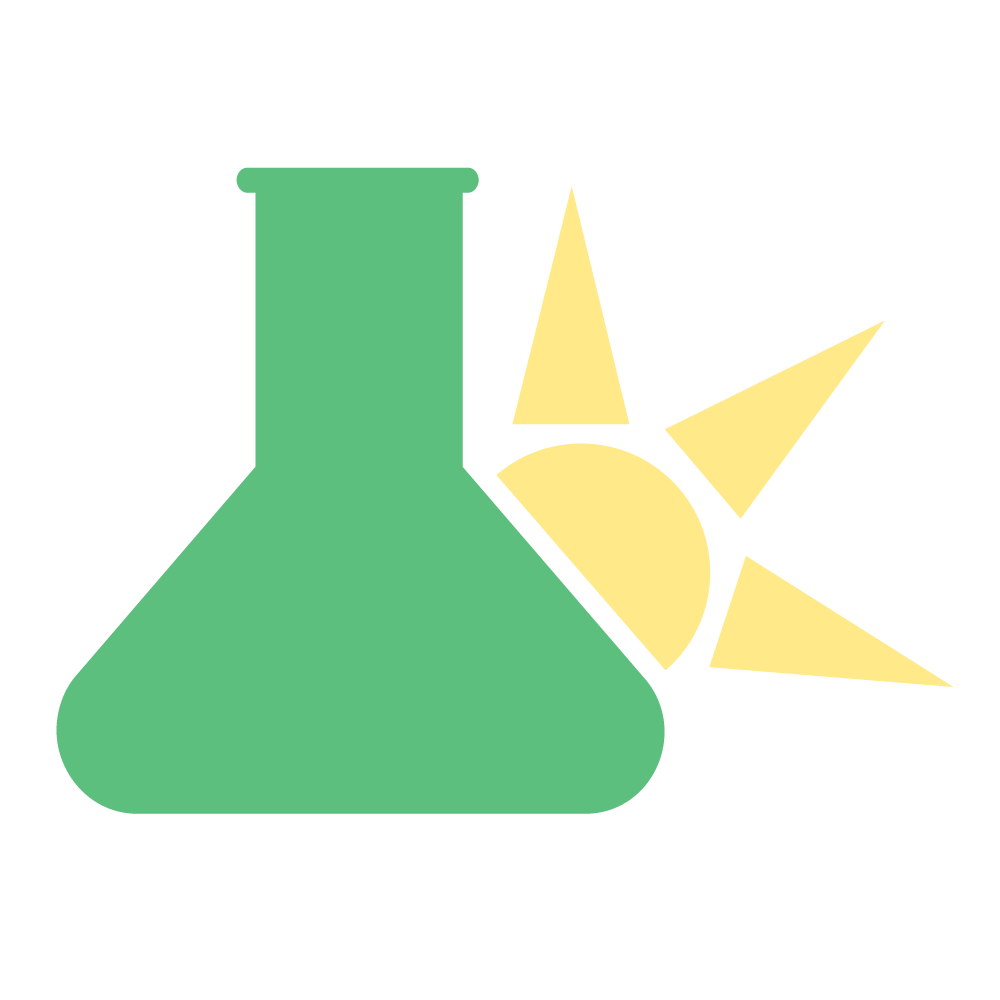The key to success when it comes to athletic performance is adopting a clean, nutrient dense diet, adequate amounts of water, and plenty of sleep.
There are extra steps you can take to optimize your athletic experience — including the use of herbal supplements.
Plants have been used for centuries to boost athletic endurance and strength.
For example, the Guarani of South America used guarana (Paullinia cupana) to improve stamina on long hunting trips in the jungle.
In other areas of the world ginseng was used by soldiers to help them outcompete their enemies in battle.
In the Tibeten mountains cordyceps were used by monks living in high altitudes to help them make the arduous journey up the mountains where they lived.
There are plenty of examples just like this of people using herbs to boost their physical ability to hunt, explore, or fight.
In this article, we’ll discuss some of the most famous herbs people are using to boost their physical output in the gym, on the pitch, or in daily life.
Let’s get started.
1. Maca Root
(Lepidium meyenii)
Maca root holds the title for the highest altitude crop in the world — found in the high Andean mountains of Peru.
The people living in these mountains have to cope with low oxygen and harsh weather all year round. These cultures eat maca on a regular basis for nutrition and to help resist the stresses of living in such an extreme environment.
The nutritional content of maca is perfect for providing the body with all of the amino acids needed for hormone production — including testosterone. This hormone plays a major role in both males and females in the bulking and fortification of muscles.
Maca is used today to support strength building and speed recovery after a tough workout. On top of the nutritional value, maca contains a series of alkaloids that offer subtle stimulating benefits on the body — perfect for boosting energy levels during training.
Maca is best taken over long periods of time as a nutritional supplement at doses over 5 grams per day.
In general, the more maca you can take the better. For best results it’s important you consume maca consistently as the effects will gradually build up over time.
You can add maca to shakes or smoothies, as capsules, or by baking the ground root into energy bars.
2. Suma
(Pfaffia paniculata)
Suma root also goes by the common name “Brazilian ginseng” for its powerful adaptogenic and energy-boosting benefits. The root of suma is used by bodybuilders and athletes for its ability to promote blood production, improve strength, and speed recovery between workouts.
Suma improves blood production and hormone synthesis — both of which are key steps towards promoting optimal athletic function.
Like most adaptogenic herbs, the benefits are best felt after several days or weeks of consistent use.
3. Guarana
(Paullinia cupana)
Guarana is very high in caffeine and related central nervous system stimulating alkaloids. In fact, guarana seeds have the highest concentration of caffeine in the plant kingdom — nearly double the caffeine content of coffee.
This herb has been shown to protect the heart, and improve it's inotropic (ability to contract) force as well — which is a critical component of optimal athletic performance.
Guarana is used to provide a boost of energy before a workout, on a long hike, or before a match — mainly as a result of the caffeine content.
The stimulating effects of the herb also promote the burning of fat by up-regulating lipid metabolism. This helps to improve lean muscle development over time.
Taking 1-3 Grams (or 2-3 capsules) of this herb about 45-60 minutes before a workout may improve energy intensity, stamina, fat metabolism, and cardiovascular function with little to no side effects.
(Guarana Seeds)
4. Eleuthero
(Eleutherococcus senticosus)
Eleuthero is another name for Siberian ginseng — a popular energy-boosting herbal supplement. This plant was made famous after it came to light that several gold medal olympians from Russia were using the supplement during their performance.
Eleuthero is considered an adaptogen — which refers to a class of herbs that promote a nonspecific increase in the bodies ability to resist stress.
This adaptogenic herb, in particular, improves oxygen uptake — which directly affects muscle growth and stamina. It has slightly stimulating effects, and if taken over time can dramatically improve endurance, strength, and recovery.
5. Cannabis
(Cannabis sativa)
Cannabis is useful for athletic endurance, but not for the reason you might think.
I don't think I need to mention that smoking of any kind will not improve your athletic performance — however, topical cannabis is an incredible muscle relaxant. If applied right after an intense workout, or on a muscle injury, it can speed recovery time and reduce muscle pain.
This has become especially popular in recent years in the form of CBD oils.
The muscle relaxant effect of cannabis can also be obtained by eating or juicing this herb raw, or by taking CBD oils and tinctures.
Cannabis seeds are a great plant source of protein (roughly 30% of the husked seed content), and also contains a rich source of fatty acids and fiber to go along with it.
6. Cordyceps
(Cordyceps sinensis)
Cordyceps is a fungus with the unique ability to improve our bloods capacity to deliver oxygen to the cells — which in turn improves overall muscle function, and recovery.
Every cell in our body needs oxygen, and during heavy workouts, this means the heart has to beat much faster in order to meet the oxygen demands of the bodies cells.
By improving oxygen delivery, you are able to optimize athletic performance and improve muscle building.
This herb is mainly used in Tibet to improve our ability to endure the low oxygen environment of the high Himalayan mountains. The added oxygen delivery allows their bodies to function and adapt much more easily to the extreme low-oxygen conditions.
This herbal supplement is a must have, especially for anybody training at high altitudes, or those using high-intensity exercises where oxygen is quickly depleted.
Cordyceps is most effective if taken daily over a long period of time, slowly building up the bloods oxygen capacity. This method is found to be much more effective than a short duration/high dose supplementation.
7. Rhodiola
(Rhodiola rosea)
Rhodiola is another high-altitude herb with adaptogenic benefits. You can find this herb thriving in some of the most inhospitable environments on earth.
The herb works by regulating AMPK — which plays a key role in energy homeostasis.
Some reports suggest rhodiola as a central nervous system stimulant — while others dispute these claims. The truth is that rhodiola is a stimulant — but not by the traditional definition. Instead, rhodiola has stimulant-like effects through its ability to improve energy homeostasis at a cellular level. When you take rhodiola it feels like you have more energy, but without any of the common side effects of stimulant herbs — such as anxiety, insomnia, or rebound fatigue.
Rhodiola has been the subject of a lot of research, mostly looking at the adaptogenic and performance-enhancing benefits of the plant as well as its role in preventing altitude sickness.
8. Black Ant
(Polyrhachis spp.)
Black ant isn’t exactly a “herb” because it’s not a plant, but it’s used in the same way as a herb — so we decided to include it on our list today.
The black ant is a specific species of ant from Southeast Asia — Polyrhachis. These ants are exceptionally high in the mineral zinc, as well as proteins used to build muscle fibers in humans.
The black ant also contains ecdysterone — which is a growth hormone for insects that transfers at least some of its effects in humans.
A lot of bodybuilders use black ant to support muscle growth, and other athletes use it for the mild stimulating effects, high zinc content, and exceptional protein profile during their training.
9. Yerba Maté
(Ilex paraguariensis)
Yerba maté is another high-caffeine herb used to stimulate the central nervous system and boost energy levels.
The leaves of the yerba maté tree contain caffeine as well as theobromine, and a long list of antioxidants and polyphenols. The leaves are consumed in the form of a tea throughout the day. Unlike coffee, yerba mate can be consumed for several hours at a time without causing common side effects of caffeine — such as anxiety, jitteriness, or muscle tension.
In some parts of South America where yerba mate grows free, it’s become more popular than coffee as a stimulating beverage.
Athletes also use yerba mate, but instead of drinking the tea, capsules are usually used.
Final Thoughts: Herbs For Athletic Performance
People will always be looking for herbs and supplements to support their athletic output. Chemicals compounds like steroids or stimulants are also used, but these tend to result in side effects like anxiety, depression, heart disease, or worse.
While herbs aren’t going to be as strong or fast-acting as these synthetic compounds, they tend to exert lasting benefits and have significantly less side effects.
If you think there’s anything important we’ve missed on this list, feel free to leave your thoughts in the comment section below.
Author:
Justin Cooke
The Sunlight Experiment















